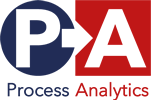
Real-Time Process Mining (JM0210-M-6) 2023
The course starts with an overview of the BPM domain using a set of twenty BPM use cases. These cover four key BPM activities: model (creating a process model to be used for analysis or enactment), enact (using a process model to control and support concrete cases), analyze (analyzing a process using a process model Read More …









